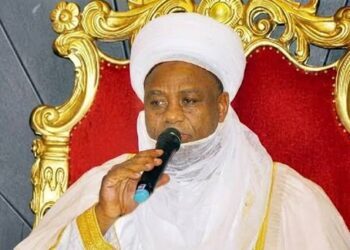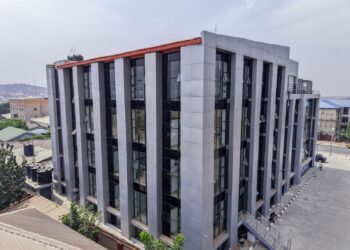A total sum of N 1.424 trillion, being Dec. 2024 Federation Account Revenue has been shared to the Federal Government, states, and the Local Government Councils (LGCs).
This is contained in a statement by Bawa Mokwa, Director, Press and Public Relations, Office of the Accountant General of the Federation (OAGF).
Mokwa said that the revenue was shared at the January Federation Account Allocation Committee (FAAC) meeting on Friday in Abuja.
Meanwhile, a communiqué from the FAAC meeting said that the N1.424 trillion total revenue comprised statutory revenue of N386.124 billion, and Value Added Tax (VAT) revenue of N604.872 billion.
It also comprised Electronic Money Transfer Levy (EMTL) revenue of N31.211 billion and Exchange Difference revenue of N402.714 billion.
The communiqué indicated that total gross revenue of N2.310 trillion was available in Dec. 2024.
It said that total deduction for cost of collection was N84.780 billion while total transfers, interventions, and refunds were N801.175 billion.
“Gross statutory revenue of N1.226 trillion was received for Dec. 2024. This was lower than the sum of N1.827 trillion received in of Nov. 2024 by N600.988 billion.
“Gross revenue of N649.561 billion was available from VAT in Dec. 2024. This was higher than the N628.973 billion available in Nov. 2024 by N20.588 billion,” it said.
The communiqué said that from the N1.424 trillion total distributable revenue, the Federal Government received the total sum of N451.193 billion, while the state governments received the sum of N498.498 billion.
It said that the LGCs received N361.754 billion, and a total sum of N113.477 billion (13 per cent of mineral revenue) was shared to the benefiting states as derivation revenue.
“On the N386.124 billion statutory revenue, the Federal Government received N167.690 billion, and the state governments received N85.055 billion.
“The LGCs received N65.574 billion, and the sum of N67.806 billion (13 per cent of mineral revenue) was shared to the benefiting states as derivation revenue.
“From the N604.872 billion VAT revenue, the Federal Government received N90.731 billion, the state governments received N302.436 billion and the LGCs received N211.705 billion,” it said.
It further said that a total sum of N4.682 billion was received by the Federal Government from the N31.211 billion EMTL.
It said that the state governments received N15.605 billion, and the LGCs received N10.924 billion.
“From the N402.714 billion Exchange Difference revenue, the communiqué said that the Federal Government received N188.090 billion, and the state governments received N95.402 billion.
It said that the LGCs received N73.551 billion, while the sum of N45.671 billion (13 per cent of mineral revenue) was shared to the benefiting states as derivation revenue.
It said that in Dec. 2024, VAT and EMTL increased significantly while Oil and Gas royalty, CET levies, excise duty, import duty, petroleum profit tax and companies income tax decreased considerably.(NAN)











